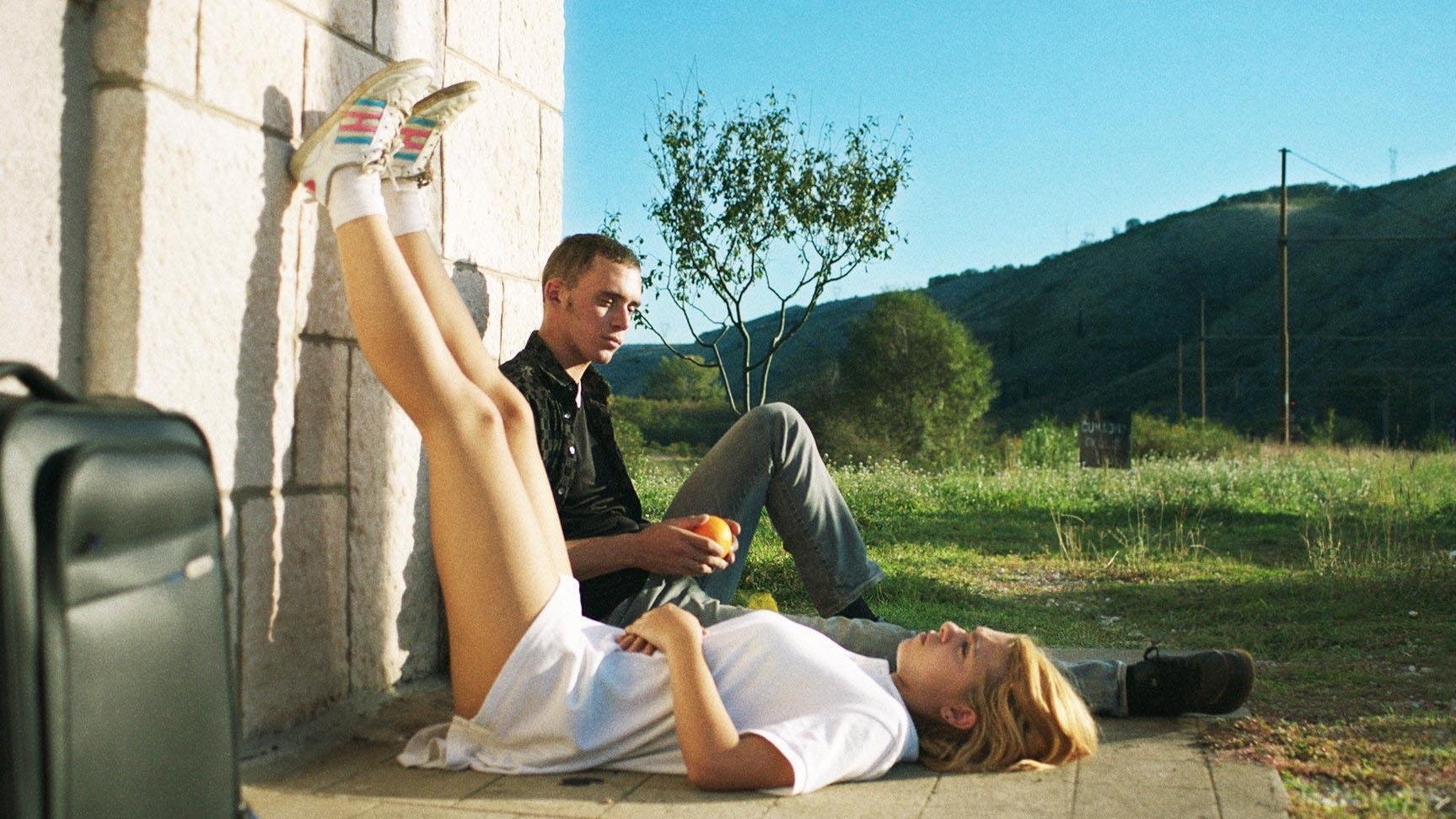Take Me Somewhere Nice
So much pleasure undermined by an ill-judged screenplay.
My eventual disappointment with this film was all the greater because I had enjoyed the first third of it so much. Take Me Somewhere Nice is the feature debut by the Bosnian filmmaker Ena Sendijarević who has readily acknowledged the extent to which she has made it under the influence of a man she much admires, Jim Jarmusch. What makes the early part of her film so engaging is the way in which it simultaneously echoes Jarmusch and achieves a character of its own.
It is hardly surprising that the Jarmusch film that comes to mind most readily here is his brilliant feature debut, 1984's Stranger Than Paradise. The cool, distanced tone and the quirky humour that one associates with Jarmusch but which never conceal his unsentimental sympathy for his characters were fully present in his debut and they are replicated here. But the echo of Stranger Than Paradise is even more unavoidable than that because what Sendijarević gives us in her screenplay is in itself a variation on Jarmusch's film. Both works feature a girl from another country who visits a cousin who is initially distant and rather resentful of her presence preferring instead to spend time with a male friend. In Sendijarević's film the girl is Alma (Sara Luna Zorić) who travels from the Netherlands to Bosnia and links up with the cousin (Ernad Prnjavorac) who has not seen her for ten years and here the friend is Denis (Lazar Dragojević) with whom Alma starts a sexual relationship. She is enamoured of Denis but suspects that he is much more casual over his involvement with her.
If the tone of Take Me Somewhere Nice is close to that of Stranger Than Paradise, so too is the emphasis on style so that it becomes a crucial factor in the film's appeal. Such elements as Jarmusch's famed tracking shots are not in evidence but this is a film of striking images, many being decidedly offbeat. Not least potent in that regard are interior sequences that frequently place the characters in the lower half of the frame where they are seen facing us while the walls and ceilings above draw attention to the space around them suggesting that these people are not yet in command of their world. This particular stylisation belongs wholly to Sendijarević. Similarly, her film as photographed by Emo Weemhoff shows good use of rural Bosnian locations and makes great play with colour whereas Stranger Than Paradise is a quintessentially black-and-white movie.
Very adroitly cast, the film gains much from the presence of Sara Luna Zorić who captures fully the sense of Alma's youthful dissatisfaction with life but remains totally engaging throughout. For half an hour or more this film displays admirably the skills of Sendijarević as a visual stylist and as a director of actors. Unfortunately, her writing ability is far more questionable. She extends the material by turning her film into a road movie as the trio travel through Bosnia. The initial concept had been that Alma had arrived there to see her dying father, a man who years before had deserted his wife and child to return to his home country. But what had looked to be a major theme of the story is less than fully developed. Instead the narrative becomes increasingly episodic as it incorporates bits and pieces that are not followed through and hardly cohere at all (there's a bit about drugs found in a suitcase, for example, and a bizarre scene in which Alma is involved in a magician's stage act). The longer this film goes on, the more it seems to fall apart. Late on, however, one episode that sees Alma phoning her mother and then shows her in tears does recapture something of the quality of the early scenes. Furthermore, the last two shots which close the film are both memorable even if the penultimate one feels more meaningful than the one that follows. Nevertheless, this is a film that seriously loses its way although with a better screenplay Sendijarević might yet prove to be a director to watch.
MANSEL STIMPSON
Cast: Sara Luna Zorić, Lazar Dragojević, Ernad Prnjavorac, Sanja Burić, Jasna Djuricić, Mirsad Tuka, Emir Hadzhiafizbegović, Mario Knezović, Alena Dzebo, Ali Zijastra, Ivana Vojinović.
Dir Ena Sendijarević, Pro Amra Baksic Camo, Layla Meijman, Iris Otten, Layla and Sander van Meurs, Screenplay Ena Sendijarević, Ph Emo Weemhoff, Pro Des Myrte Beltman, Ed Lot Rossmark, Music Ella van der Woude, Costumes Nedda Nagel.
Pupkin Film-MUBI.
91 mins. The Netherlands/Bosnia & Herzegovina. 2019. Rel: 21 May 2020. Available on MUBI. No Cert.


